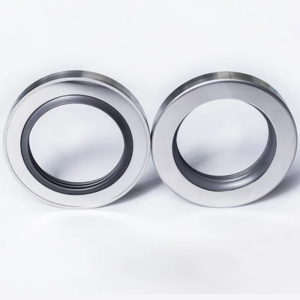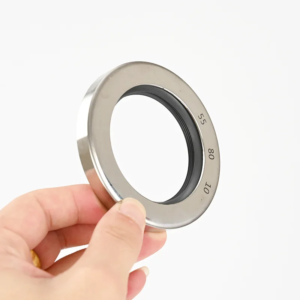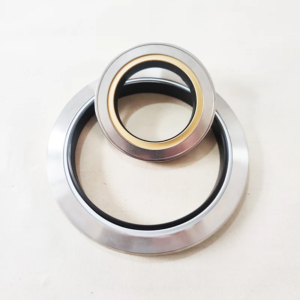Table of Contents
ToggleComprehensive Guide to Oil Seals: Applications, Popular Models, Sizes, Costs, and Market Insights
Oil seals are essential components used across various industries to prevent oil leaks, maintain pressure, and ensure smooth operation of machinery. In this article, we will explore the application of various oil seals such as Parker oil seals, Viton oil seals, PTFE oil seals, and Timken oil seal cross reference. We will also provide insights into sizes like 10x22x6 oil seal, 12x22x5 oil seal, and popular models like the 181991 oil seal.



Oil Seal TCM: High-Quality Sealing Solutions
The oil seal TCM refers to seals manufactured by TCM Corporation, a well-known brand in the sealing industry. TCM oil seals are widely used in heavy machinery, automotive, and industrial applications.
Applications:
- Heavy Machinery: Used in large construction and industrial machines to prevent fluid leaks.
- Automotive: Applied in engines, transmissions, and other vehicle components to ensure proper lubrication.
Costs: TCM oil seals generally cost between $0.2 and $15 depending on the size and application.
Parker Oil Seal: Trusted Sealing Technology
Parker oil seals are renowned for their high performance, durability, and ability to withstand extreme temperatures and pressures. They are used in a variety of industries, including automotive, aerospace, and industrial machinery.
Applications:
- Automotive: Used in engine components, transmissions, and wheel hubs.
- Aerospace: Applied in aircraft systems to ensure fluid retention and prevent leaks under extreme conditions.
- Industrial Machinery: Utilized in pumps, valves, and various machinery to provide reliable sealing.
Popular Models:
- Parker 12x20x5: A widely used oil seal in automotive applications.
- Parker 17x29x5: Common in industrial and automotive applications.
Costs: Parker oil seals typically range from $0.1 to $25.
PTFE Oil Seal: Advanced Sealing Solution
PTFE oil seals (polytetrafluoroethylene) are known for their exceptional chemical resistance, high-temperature stability, and low friction. These seals are ideal for applications that involve harsh chemicals or extreme temperatures.
Applications:
- Chemical Processing: Used in equipment that processes aggressive chemicals and fluids.
- Automotive and Aerospace: Applied in systems requiring high heat resistance and durability.
- Industrial Pumps: Used in pumps handling high temperatures and harsh fluids.
Costs: PTFE oil seals are typically priced between $1.5 and $30, depending on the material grade and application.
Shaft Oil Seal: Sealing Rotating Shafts
The shaft oil seal is designed to prevent oil leakage from rotating shafts. It ensures that lubricants stay contained within the machinery, preventing contamination and maintaining optimal performance.
Applications:
- Automotive: Commonly used in crankshafts, axle shafts, and wheel hubs.
- Industrial Machinery: Found in rotating shafts, gearboxes, and pumps.
Costs: Shaft oil seals generally cost between $1.5 and $15 depending on size and material.
Timken Oil Seal Cross Reference: Finding Compatible Seals
The Timken oil seal cross reference helps identify equivalent seals from different brands, ensuring compatibility for replacement. This is crucial when replacing seals from brands like SKF, National, or Parker.
Applications:
- Automotive: Used in replacing worn-out oil seals in engines, transmissions, and gearboxes.
- Industrial: Applied in machinery to ensure continuous operation without oil leaks.
Popular Models:
- Timken 471100: Cross-referenced to SKF 12935 and National 471200.
- Timken 471200: Common in automotive and industrial applications.
Costs: Timken oil seals typically range from $1.5 to $20.
Viton Oil Seal: Durability in Extreme Conditions
Viton oil seals are made from fluorocarbon rubber, providing excellent resistance to high temperatures, oils, fuels, and harsh chemicals. These seals are widely used in applications where conventional seals might fail.
Applications:
- Automotive: Used in high-performance engines, especially in turbochargers and fuel systems.
- Chemical and Aerospace Industries: Ideal for sealing fluids in extreme conditions.
Costs: Viton oil seals typically cost between $0.25 and $30.
Popular Oil Seal Sizes and Their Applications
Oil seals come in a variety of sizes, with each one designed for specific applications. Below are some common sizes and their uses.
10x22x6 Oil Seal: A Common Size for Smaller Applications
The 10x22x6 oil seal has an inner diameter (ID) of 10mm, outer diameter (OD) of 22mm, and thickness of 6mm. It is typically used in smaller automotive or industrial machinery.
Applications:
- Automotive: Applied in smaller engine components and gearboxes.
- Industrial Machinery: Used in small pumps and compressors.
Costs: Typically ranges from $0.2 to $8.
12x22x5 Oil Seal: Versatile and Widely Used
The 12x22x5 oil seal is one of the most common sizes used in both automotive and industrial applications. This size is often found in smaller machinery where sealing performance is required at a cost-effective price.
Applications:
- Automotive: Used in wheel hubs, small engines, and transmissions.
- Industrial: Found in pumps, valves, and compressors.
Costs: Ranges from $0.2 to $8.
12052A Oil Seal: Specific Model for Industrial Applications
The 12052A oil seal is designed for use in specific industrial applications, providing a tight seal and ensuring the protection of critical machinery components.
Applications:
- Industrial Pumps: Used in rotating shaft applications.
- Hydraulic Equipment: Seals in hydraulic pumps and systems.
Costs: Typically priced between $5 and $15.
181991 Oil Seal: Reliable Sealing for Automotive and Industrial Use
The 181991 oil seal is a widely used model known for its reliability in automotive and industrial applications.
Applications:
- Automotive: Commonly used in car transmissions and engines.
- Industrial: Applied in machinery such as pumps, compressors, and gearboxes.
Costs: Generally ranges from $1 to $25.
Summary of Popular Oil Seal Sizes
Here are some additional common oil seal sizes and their uses:
- 12x20x5 Oil Seal: Used in smaller automotive engines and hydraulic systems.
- 12x28x7 Oil Seal: Common in transmission and heavy-duty machinery applications.
- 14x22x5 Oil Seal: Frequently used in small industrial machinery and automotive applications.
- 14x28x7 Oil Seal: Found in vehicle differential systems and industrial gearboxes.
- 16x24x5 Oil Seal: Applied in smaller engines, gearboxes, and light machinery.
- 17x29x5 Oil Seal: Used in automotive and light industrial machinery applications.
- 17x40x7 Oil Seal: Ideal for larger machinery and automotive applications that require a higher sealing capacity.
Conclusion
Oil seals are indispensable components that ensure proper lubrication, prevent oil leaks, and enhance the efficiency and longevity of machinery across various industries. Whether it’s a Parker oil seal, Viton oil seal, or Timken oil seal, understanding the sizes, applications, and costs associated with these seals ensures that you can select the most suitable option for your needs. From small sizes like 10x22x6 to larger seals such as 17x40x7, the market offers a wide range of options to meet diverse sealing requirements.



Leave A Comment